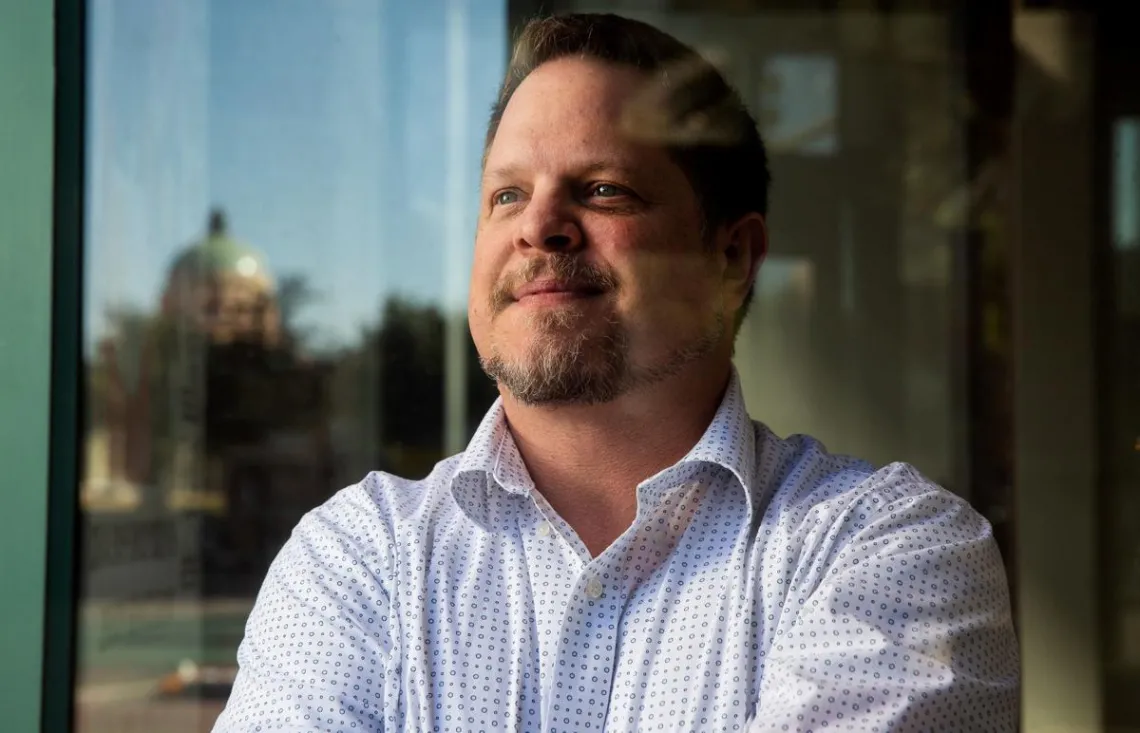Director's Note: Straight from the Hearth
Rethinking ROI: How Growing an Entrepreneurial Mindset Requires Systemic, Societal Change

This week, FORGE Director, Brian Ellerman took some time to put context around what it means to rethink ROI as a society and the role that FORGE can play in growing an entrepreneurial mindset and making systemic, societal change.
While the human and economic impact of the COVID-19 crisis is still months, if not years, away from being calculated, a few weekends ago prominent entrepreneur and investor Marc Andreesen posted a thought-provoking essay entitled ‘It’s Time to Build’ that got a lot of heads nodding in approval. The central premise of the piece is that the criticisms of the pandemic response, particularly in the US, rest not with any political party or official, but our collective lack of production. With our ability to build.
“Building isn’t easy, or we’d already be doing all this. We need to demand more of our political leaders, of our CEOs, our entrepreneurs, our investors. We need to demand more of our culture, of our society. And we need to demand more from one another.” - Marc Andreesen
I’ll leave you to read the post and draw your own conclusions, but something I took away was the need to rethink return on investment (ROI). Society broadly, and risk capital in particular, has an unrealistic, sometimes unhealthy expectation of how quickly and at what multiple capital outlays should be repaid. In the startup world, an innovation that stands to benefit society is unlikely to achieve scale (and confer that benefit) if it cannot also demonstrate outsized ROI for early investors.
Meanwhile, [insert premise here]-as-a-service startups haul in millions in investment at billion-dollar valuations. Failing a shift in mindset among investors, which is unlikely, something needs to change in the way seed stage capital is raised. Something that places equal weight on societal as well as economic benefit, and with a longer, say 10-year, time horizon. Call it venture philanthropy, or philanthropic capitalism. Either way, it is patient and society-minded capital.
“We need to break the rapidly escalating price curves for housing, education, and healthcare, to make sure that every American can realize the dream, and the only way to do that is to build.”
Something else I took away from Marc’s essay was the need for better social safety nets. At a recent entrepreneur roundtable we hosted with John Dearie and the Center for American Entrepreneurship, founders and small business owners talked about the challenge of running profitable and growing businesses while navigating (and paying for) healthcare, childcare, varying tax and legal rules and advice, and the recruitment of highly qualified talent. Many of them are having to choose between putting money back into their businesses or paying their own health premiums!
In order for us to build, teach others to build, or take care of those who build – especially in the midst and aftermath of a pandemic – we cannot have the fear of losing one’s home or healthcare coverage hanging over those who are already risking everything to build a business and drive the economic engine.
We need to identify or create better safety nets for entrepreneurs.
In the coming months, I’ll explore these concepts and some modest proposals to address each. In so doing I’ll also discuss how I founded FORGE as an entrepreneur support organization to play a central role in improving conditions necessary for founders and startups to succeed, for companies to innovate, and for students to benefit from all this: to graduate better prepared than ever to tackle real-world problems, to build things.

